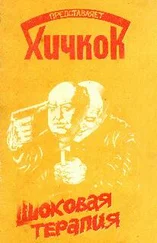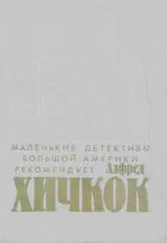MIRIAM ALLEN DEFORD
THE LONG ECHO
Dutch Schultz — which wasn’t his real name, either, but the one by which he was known in his heyday as a New York gangster — lay dying on a hospital bed one day in 1935.
A group of hoodlums from a rival gang had invaded the room back of a saloon where he was in consultation with some of his henchmen. They had pumped him full of machine gun bullets. And they had escaped. Now, in a high fever, he mumbled ceaselessly and unintelligibly.
No mourning family (though he had one) sat around his deathbed. His last companions were doctors, nurses and a detective from the homicide squad. The doctors and nurses were there to keep him alive as long as possible, so that the detective might perhaps extort from him the name of his murderer.
A doctor murmured: “You’d better try again; he’s going fast.”
The detective leaned forward.
“Come on, Schultz,” he exhorted. “It can’t hurt you now. You knew them — who was it?”
The dying gangster went on mumbling in delirium.
Then suddenly his eyes opened. He stared straight into the detective’s face. He tried to raise his head, fell back on the pillow and said, clearly and distinctly, just ten words: “A boy has never wept, or dashed a thousand krim.”
All this is history. You can read it in the files of any newspaper. What you can’t read is.
* * * *
On the Earth-type Planet II of Alpha Centauri, known to its colonists as Novaterra, in the year 3935 of our Earth, a party of young students on holiday was making camp for the night near the ruins of the city of Ish. They were two youths and a girl. Sha, the girl, was a psychophysicist in the making, Rof was in training as a space navigator, Lerin was a budding archaeologist with a special flair for philology; he also fancied himself as a poet and was something of a show-off.
He could not resist now.
“Have you heard that they’ve got this translated at last?” he asked, gesturing toward the massive city gates. The whole of the great unbroken stone arch was covered with minute incised writing, in a script like bird-tracks.
“Who cares?” yawned Rof.
“I care. It’s the biggest thing in Novaterran prehistory. It means we can interpret all the records of the aborigines— and the last native died a thousand years before the first Terran spaceship landed here.”
“How were their records any different from those of humanlike natives of any other planet?” Sha inquired. She was not very curious, either — specialization went far on Novaterra — but she was polite.
“Not much, I admit. They were still essentially barbarians when the spore plague wiped them out. But this city was destroyed centuries before that. It was mined and burned — they were barbarous, but they had some form of explosive — in revenge by a queen for the killing of her three sons in a local revolution. The city was utterly demolished, and every living being in it perished, whichever side of the rebellion he was on.
“Did you say a queen?” Rof’s tone sounded livelier. “Were they governed by queens?”
“You can call her that. It was a matriarchy. Almost like a beehive back on Earth, except that of course they were thoroughly human, sexually. The women were rulers and administrators, the men were soldiers. The manual labor seems to have been done by both sexes when they grew too old for ruling or fighting.”
“Not a bad set-up,” Sha smiled. “We might try it ourselves.”
“Except that we have no need for soldiers. Or for kings or queens, either. Anyway, this inscription up here is a poem— a sort of elegy. Of course Aboihaz herself didn’t do it. She died with the rest when she blew up the city.”
“Aboihaz — was that her name?”
“Yes. They had outlandish names. Her three sons, for instance, were named Dasht, Krim, and — I guess Athow would come nearest to pronouncing it. And the leader of the rebellion was named Godahuk. People from another city, probably another queen, must have had the inscription made as a sort of warning to future rebels who might get ideas.
“I made a rough translation of the poem myself the other day,” Lerin added with specious modesty.
* * * *
Rof groaned.
“Shut up, Rof,” Sha said. “I’m interested.”
“No, you’re not,” Rof retorted. “Ten to one he’s put it into some remote Terran tongue nobody can understand, instead of into good Interlinguan.”
“Well, I did do it in Early English,” Lerin admitted. “It seemed appropriate — about the same cultural period on Earth as it was on Novaterra when the thing happened. I can give it to you in Interlinguan, of course. But if I recite it to you now in an ancient Terran language, it might reverberate on Earth, back even to its own time. Not that I’d ever know if it did.”
“Now look what you started, Sha! What do you mean, Lerin — reverberate?”
“It’s a theory — Sha can tell you more about it than I can. The underlying principle is that time is cyclic and circular-”
“We all know that; it’s elementary psychophysics.”
“Exactly. Well, then, any utterance made in time-space may enter the time-space spiral, at any point, and go forward or backward forever till it returns to its point of origin. You tell him, Sha.”
“Lerin’s right, Rof, though I’d never thought of it as applying to the recitation of a poem. The words have to reach a receptive mind — which is only an improbable possibility. Then, if it’s a writer, say, he calls it an inspiration; or a visionary might consider it a prediction of the future; or a financier or a gambler might say it was a detailed hunch.”
“Or a criminal might think he had the blueprint for a perfect crime.”
“Yes, the receptive mind doesn’t have to be a superior or noble one. But the receptor — at least that’s the theory — must be in — well, let’s say an open state in order to receive it. Perhaps lost in a trance. Or absorbed in artistic creation, or delirious. Or even insane.
“Of course the reverberation may come from the past instead of the future. Then the poor author is accused of plagiarism when he’s entirely innocent. Or the lunatic repeats passages from books he never read.”
“I know just what you mean,” interrupted the irrepressible Rof. “I received a reverberation myself only this morning. I distinctly heard a voice saying, ‘I want a drink of quizik.’ So I gave the poor thirsty creature one — by taking it myself.”
“Oh, stop it, Rof! Your mind was never in a receptive state in your life.”
“Can you recite some of your poem, Lerin? I know a little Early English — not much, but enough to get the general idea. Rof can stand it, to punish him for being so frivolous.”
Rof groaned again. Lerin cleared his throat.
“Well, my translation’s not a masterpiece or anything; it’s just an approximation. I had an awful time fitting in all those weird personal names. I’ll just give you the first dozen lines or so, and spare you the rest.”
“It’s probably all he remembers, or he’d inflict it all on us.”
“Rof, will you-Go on, Lerin.”
Lerin cleared his throat again and began to declaim:
Behold a mother’s anguish, behold a queen’s revenge.
Three valiant sons and young, by foul rebellion slain,
Three, standing sword by sword to guard their mother’s throne.
Of Ish the mighty city a funeral pyre she made,
The city’s self alone worthy to be their tomb.
None lived of friend or foe, in scorching flame they fell,
And she herself, Aboihaz, lay down in fire and died.
When at her feet they laid the corpses of her sons,
Aboihaz never wept o’er Dasht, Athow, and Krim:
Читать дальше






![Джеффри Арчер - The Short, the Long and the Tall [С иллюстрациями]](/books/388600/dzheffri-archer-the-short-the-long-and-the-tall-s-thumb.webp)





